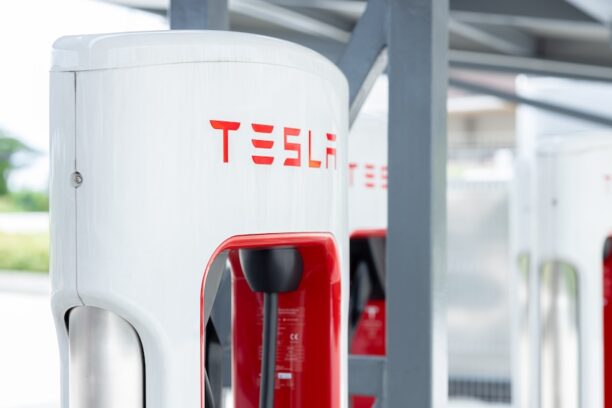It has been an interesting few days and weeks concerning how some major companies are changing their climate programs, which also impacts other businesses that rely on or incorporate those into their own climate progress metrics and assumptions. These shifts mean that a multitude of firms need to reevaluate their own climate assumptions and targets because it is possible that infrastructure and broad market changes anticipated may not happen.
Fossil Fuels Are Winning
Let’s start with oil and gas companies. According to The Wall Street Journal:
“Shell’s new CEO said the London energy giant will ratchet back low-profit clean-energy investments while pumping out more fossil fuels, a pivot from a period when the biggest European producers emerged as enthusiastic champions of renewable-energy sources. Investors on both sides of the Atlantic in recent months have rejected a buffet of climate pushes. Instead they have preferred the gushers of cash generated by record profits that have been fueled in part by Russia’s invasion of Ukraine…
‘This is a fundamental culture change,’ Shell Chief Executive Wael Sawan said during a Wall Street presentation on Wednesday designed to woo investors, particularly those in the U.S. Sawan said Shell will shift more resources to the fossil fuels that drove its record 2022 profit. At the same time, it will abandon some previously set targets for low-carbon energy production and be more ruthless in demanding strong returns from all businesses.
… the company said Wednesday that it would share billions of dollars more of its profit with investors through increased dividends and buybacks. It is also promising to cut companywide costs and spend less cash on its businesses…
Shell had said previously that it expected to reduce its oil production by 1% to 2% annually through this decade. After reaching targeted multiyear cuts sooner than anticipated, the company said Wednesday that it now plans to keep oil flowing at a steady rate through 2030.”
The same article mentioned that BP is also returning to a fossil fuel focus:
“That thirst for cash has coincided with continued strong demand for fossil fuels, emboldening Shell and London-based rival BP to defend oil production and dial back aspects of the clean-energy focus they embraced with fanfare just a few years ago… BP said earlier this year that it would slow its transition to renewable energy and increase spending on oil and natural-gas production.”
You might think Exxon is different, given Engine No. 1’s 2021 success in seating three new board members to facilitate the company’s carbon transition process at the highest levels. Well, things may not be so different in reality. ESGInvestor wrote an article about the company in its current form:
“In some key respects, progress seems negligible. InfluenceMap research highlights Exxon’s continued attempts to lobby against climate-focused policy, which [Edward] Collins [Director at NGO InfluenceMap] says is ‘significantly misaligned from what the science tells us.’
Barbara Davidson, Carbon Tracker’s Head of Accounting, Audit and Disclosure, also argues that Exxon’s board is still ‘failing to provide all the required climate-related financial information to investors’…
Shareholder pressure appears to have stalled. This AGM season, Exxon shareholders rejected all filed shareholder proposals – the majority of which addressed climate-related issues. These included a request by activist group Follow This – which was labelled ‘an anti-oil and gas group’ by Exxon CEO Woods – for the company to set medium-term decarbonisation targets for Scope 3 emissions. The resolution received support from just 11% of shareholders, down from 28% the previous year. ”
Chevron saw similar reduction in support for shareholder climate resolutions at their 2023 AGM.
Exxon’s 1Q23 financial results announcement included this statement from CEO Darren Woods:
“We are growing value by increasing production from our advantaged assets to meet global demand. At the same time, our Low Carbon Solutions team is rapidly growing this new business with an additional carbon capture, transportation and storage agreement that underscores the company’s growing momentum in providing industrial customers with large-scale emission reduction solutions.”
Carbon capture and storage is viewed by many as a way for large emitters to continue operating without tackling point source emissions reductions – i.e., business as usual in terms of production and processing volumes.
Banks Are Still Lending
Those who provide finance to heavy emitters faced pressure to reduce financial support of those industries. To some extent, that worked a couple years ago. But today, we see a confluence of high returns from high emitters and an emerging belief that while climate risk may be a material threat to borrowers, it may take a decade or more for that to, uh – materialize.
Bloomberg wrote about this last week, highlighting London-based Standard Chatererd plc:
“… inside the London headquarters of Standard Chartered Plc, it might be another decade before the reality of a warming planet registers – at least when it comes to certain loans extended by the financial institution. That’s the time frame in which losses from loans made to high-carbon industries—the ones most responsible for global warming—may become financially material for the bank. Michael Newby-Fraser, Standard Chartered’s head of carbon accounting and net-zero delivery, said climate risks, both those arising from physical events and from the transition to a low-carbon economy, won’t hit the bank’s loans until 2030 to 2035…
The bank did consider potential climate-related impacts [in loans to the eight sectors where emissions are highest—including oil and gas, coal mining, shipping and aviation] but Newby-Fraser explained that their impact was so small that the bank decided against including that information in the final analysis. That’s because Standard Chartered’s auditor determined the materiality threshold for the company in 2022 was $210 million, or 0.4% of the bank’s equity. Any exposures less than that were considered immaterial. And when it came to the climate crisis, it didn’t make the cut.
… the fossil-fuel industry is currently a gold mine. Elevated energy prices have led to higher revenues for companies in high-carbon, heavily polluting sectors, meaning most have no short-term problems servicing their debt. In fact, while the eight carbon-heavy sectors accounted for 14.4% of Standard Chartered’s loan balances last year, they only comprised roughly 11% of the bank’s credit losses.
And since more than 70% of the bank’s loans to these sectors come due in five years or less, the money will likely have been repaid before climate risks begin to undermine companies’ creditworthiness, Newby-Fraser said.”
What This Means
At first glance, delays to climate progress appear to relate only to those companies mentioned. However, these actions reverberate through supply chains, geographies and economies. There is a climate domino effect – businesses establish their own climate goals, expectations, plans and metrics based in some part on where they sit in the supply chain. Changes by those upstream and/or downstream impact production/demand, fuel/power needs, mix and availability for production and transportation and the timing of changes that require investment and adaptation. As uncertainty increases, investments in changes stall and status quo continues. Two years ago, I wrote about some of the risks built into corporate climate assumptions which remain valid, but are only a few examples of what can change (and looking back – has).
If your company hasn’t completed a thorough assessment of how current market conditions and emerging trends are changing the climate setting as that relates to your own climate goals, expectations and programs – it is time. Assumptions embedded in your company’s climate goals and Net Zero commitments may not be valid anymore, especially with regard to Scope 2 and 3 emissions. PracticalESG Advisory Board Member Mark Trexler previously wrote about auditing your climate risk assumptions. Now is time to consider doing that.










